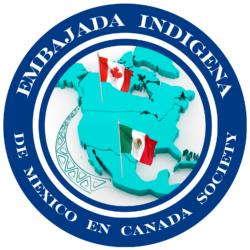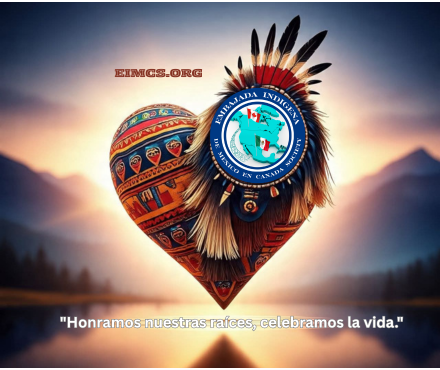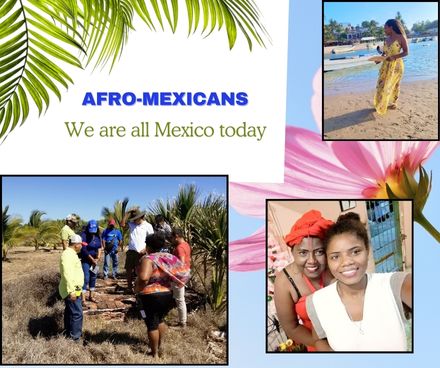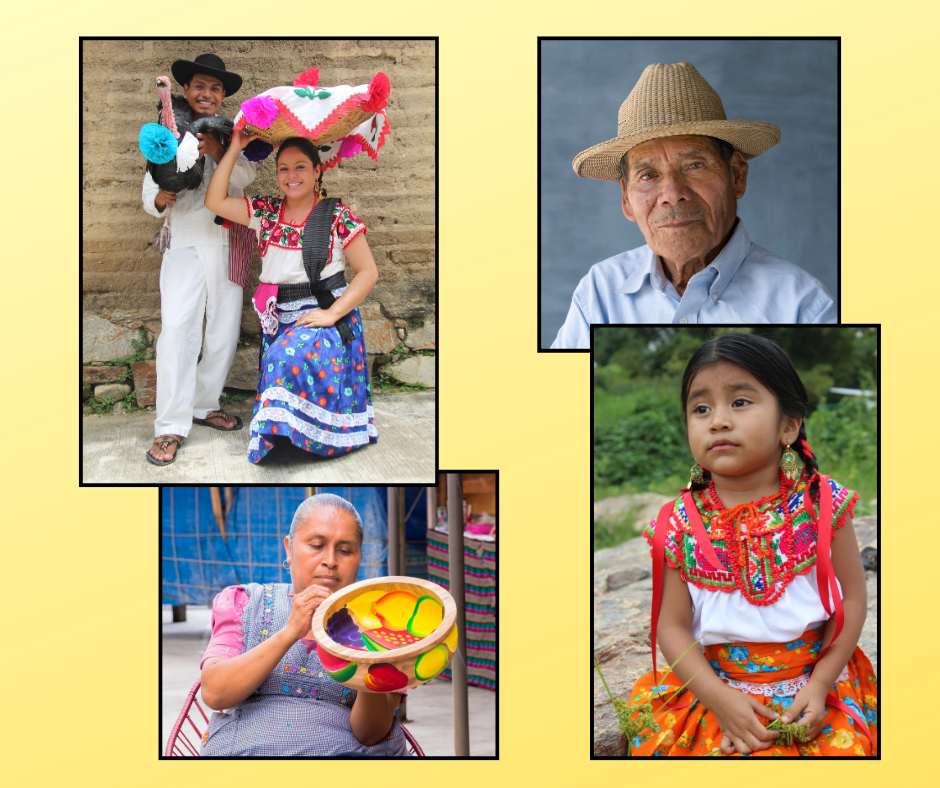![]()
Welcome to the News Section of the Indigenous Embassy of Mexico in Canada!

Here, you will find the latest updates and stories about the initiatives, cultural events, and important developments within Mexico’s Indigenous communities. We are committed to bringing you timely and relevant information, celebrating the rich heritage, achievements, and contributions of Indigenous peoples both in Mexico and abroad.
Stay informed with our news, and join us in fostering awareness and understanding of Indigenous rights, traditions, and culture. Thank you for visiting!
Official Announcement: Mexican Government Initiatives for Indigenous and Afro-Mexican Communities
On January 2, 2025, during the morning press conference, the President of Mexico, Claudia Sheinbaum, unveiled significant initiatives aimed at enhancing the rights and well-being of Indigenous and Afro-Mexican communities. Below is a summary of the key announcements:
Historic Budget Allocation for Social Infrastructure
The Ministry of Welfare announced a historic budget dedicated to social infrastructure projects, benefitting over 11,000 communities living in extreme poverty. The funding is distributed as follows:
State-level funding: 13.5 billion pesos.
Municipal-level funding: 97.9 billion pesos.
Direct support for Indigenous communities: 12.4 billion pesos.
These resources will be used to develop urbanization, electrification, potable water access, housing improvements, and strengthen healthcare and education infrastructure. The National Institute of Statistics and Geography (INEGI) will identify the communities most in need to ensure equitable distribution of resources.
Constitutional Reform to Recognize Indigenous Rights
A recently approved reform to Article 2 of the Mexican Constitution acknowledges Indigenous and Afro-Mexican peoples as subjects of public law. This milestone strengthens their autonomy to preserve their governance systems, languages, and cultural traditions. Additionally, President Sheinbaum announced the translation of these reforms into Indigenous languages and the drafting of secondary legislation to ensure their effective implementation.
2025: The Year of the Indigenous Woman
In an effort to honor and empower Indigenous communities, the federal government has declared 2025 as “The Year of the Indigenous Woman.” This initiative will feature symbolic representations of Mexica, Mixtec, Maya, and Toltec women as national emblems, highlighting their vital roles in the country’s history and ongoing development.
Commitment of the Embassy of Indigenous Mexico in Canada
As the diplomatic representation of Indigenous Mexico, our Embassy is committed to promoting these initiatives and strengthening ties with Indigenous and Afro-Mexican communities residing in Canada. We aim to ensure that these policies translate into tangible benefits and foster respect for their culture and rights.
We invite everyone to stay informed about the progress of these initiatives and actively participate in their dissemination.
Let’s work together for the dignity and development of our peoples.
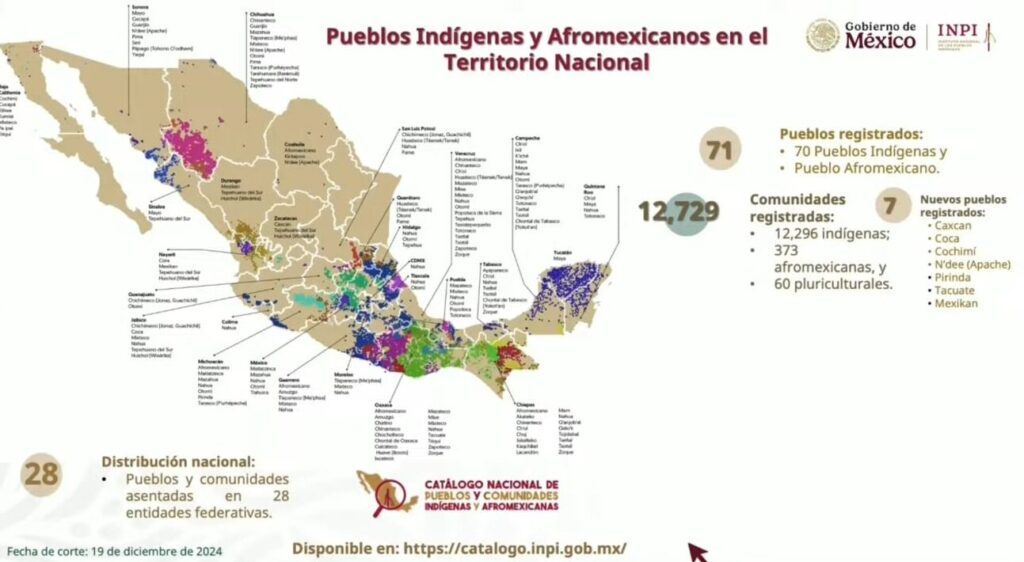
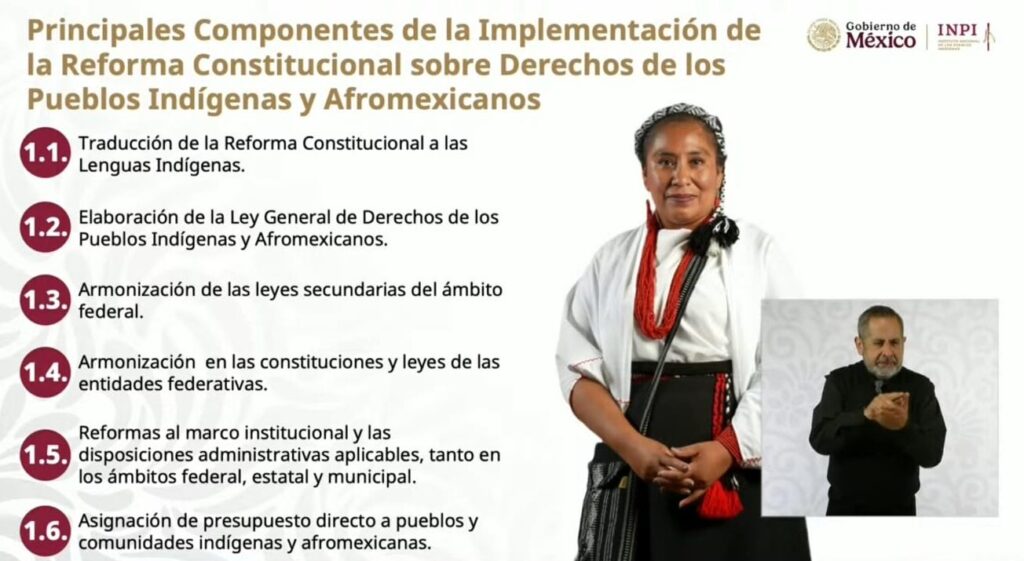
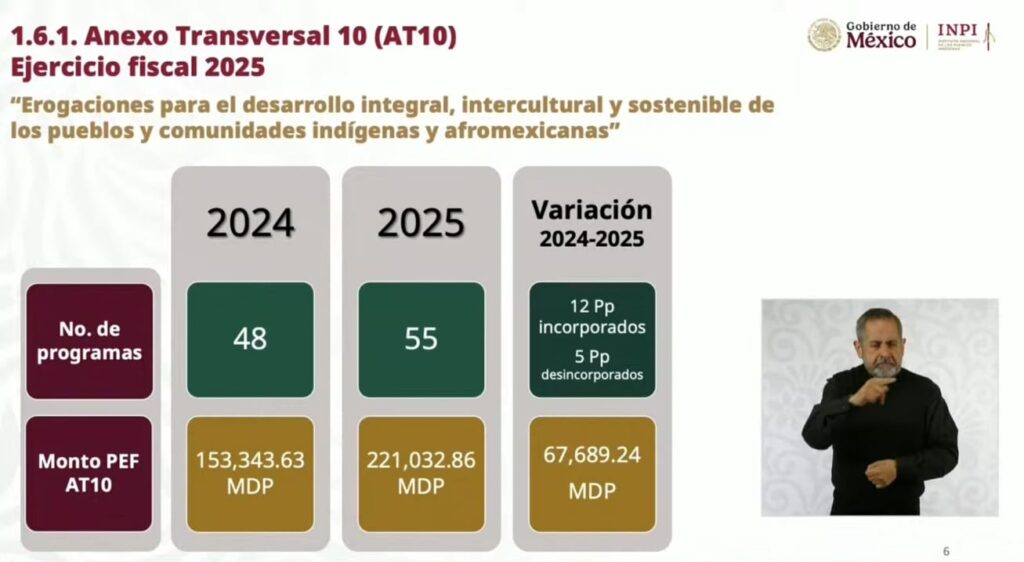
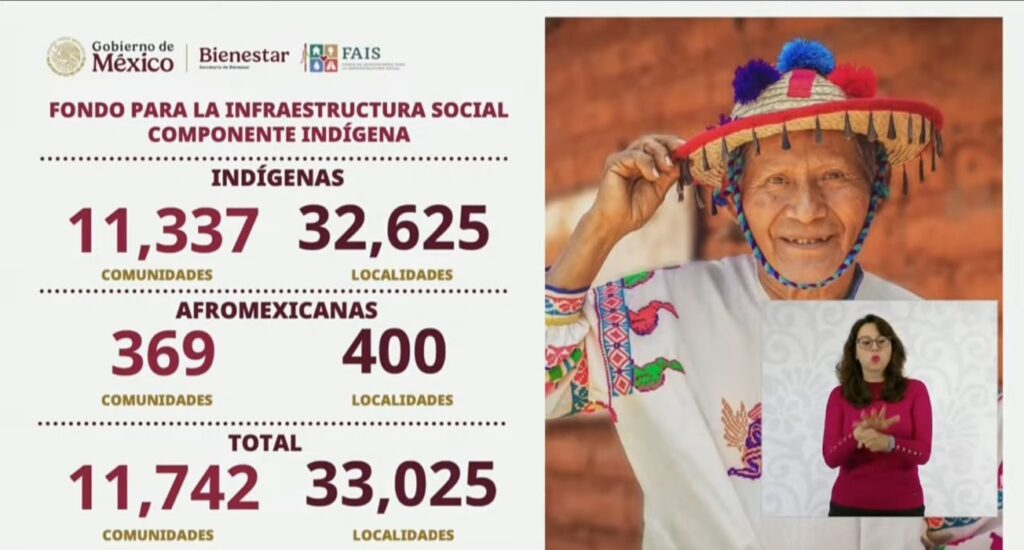
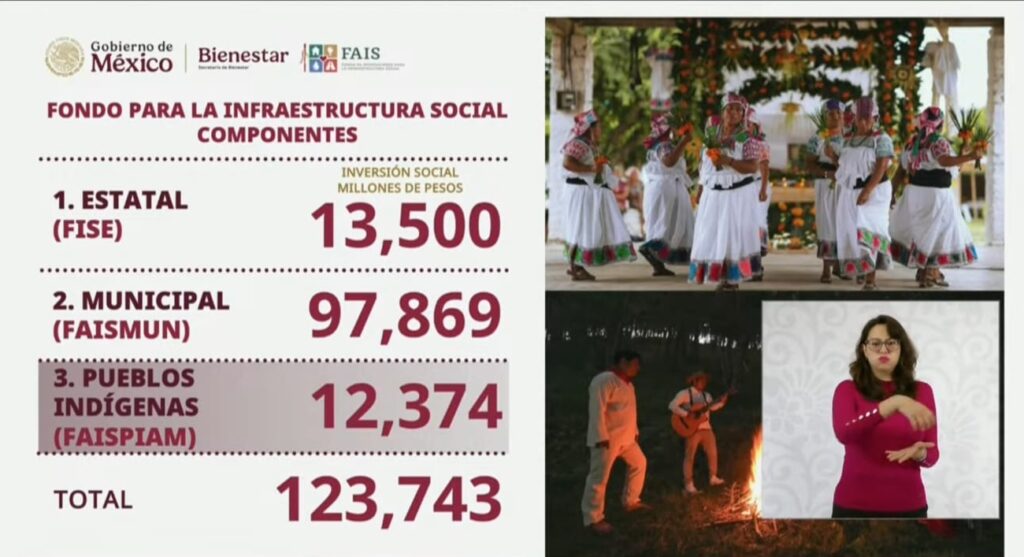
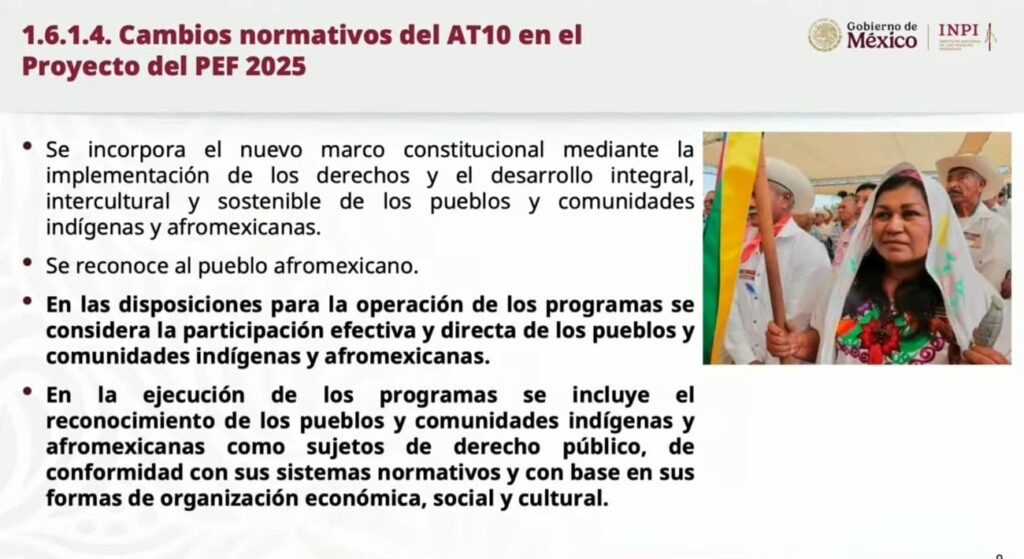
History of the Creation of the National Indigenous Government of Mexico
The National Indigenous Government of Mexico (Gubernatura Nacional Indígena de México, or GNIM) is an organization that emerged in response to the long-standing struggles for recognition, autonomy, and the rights of Indigenous peoples in Mexico. Its creation is deeply rooted in the historical demands of Indigenous communities who, for centuries, have faced marginalization, land dispossession, and the violation of their fundamental rights. The GNIM was formed as a political structure to organize and fight for the dignity and respect of Indigenous peoples both within Mexico and internationally.
Historical Context
The history of Indigenous peoples in Mexico is marked by resistance against colonization. From the arrival of European colonizers in the 16th century, Indigenous communities have endured the loss of their lands, cultures, and autonomy. These centuries of struggle have given rise to continuous efforts to preserve their identities, territories, and social organization. While some recognition of Indigenous rights occurred during the Mexican Revolution (1910-1920), the situation of poverty and social exclusion remained a constant problem throughout the 20th century.
Early Indigenous Movements
The 20th century witnessed a growing awareness and mobilization of Indigenous peoples in Mexico. In the 1990s, the fight for Indigenous rights gained renewed momentum with the Zapatista Army of National Liberation (EZLN) uprising in 1994, which advocated for the autonomy and dignity of Indigenous peoples in southeastern Mexico. This movement highlighted the urgent need for a political space that could effectively represent Indigenous demands on a national level.
The Creation of the National Indigenous Government of Mexico
The National Indigenous Government of Mexico was established in a context of increased Indigenous mobilization and recognition that traditional political structures were failing to address the needs and demands of Indigenous communities. Unlike government-run institutions, the GNIM is an autonomous organization aimed at ensuring the voice, rights, and self-determination of Indigenous communities, within the framework of human rights and international law.
The creation of the GNIM was driven by several key reasons:
Defense of Indigenous Rights: The GNIM was created to advocate for the protection and enforcement of fundamental rights for Indigenous peoples in Mexico, including land rights, cultural preservation, self-determination, and political participation.
Autonomy and Self-Governance: One of the GNIM’s central demands is the promotion of Indigenous autonomy. Indigenous communities seek to exercise their right to self-government and make decisions about their territories and development without interference from external authorities that often do not understand their realities and needs.
Political Representation and Recognition: The GNIM was created as a political platform to ensure that Indigenous voices are heard in decisions that affect their lives and territories, especially in the Mexican government and international organizations where their representation had been historically inadequate.
Cultural Reclamation: The GNIM also plays a crucial role in preserving, promoting, and strengthening Indigenous languages, traditions, and customs, which have historically been threatened by processes of cultural homogenization and the imposition of the dominant culture.
The National Indigenous Government Today
Today, the National Indigenous Government of Mexico continues its work to strengthen the rights of Indigenous peoples across the country. Through a community-based organizational system and collective leadership, the GNIM focuses on sustainable development, intercultural education, protection of Indigenous territories, and the denunciation of human rights violations against Indigenous communities.
In a globalized world, the GNIM has also formed links with other international Indigenous organizations, advocating for global recognition and fostering solidarity among Indigenous peoples worldwide. The GNIM has become a platform not only for Indigenous peoples to reclaim their place in Mexican society but also to amplify their struggles on the global stage.
Conclusion
The creation of the National Indigenous Government of Mexico represents more than just a symbol of resistance—it is a beacon of hope for Indigenous peoples who, throughout history, have fought for their right to determine their own destiny. This institution was formed to affirm that Indigenous peoples have the inalienable right to self-govern and preserve their cultural identities, as well as to actively participate in the political and social decisions that affect them.
This ongoing movement is a response to centuries of marginalization and exclusion, affirming that through unity and organization, Indigenous peoples can and should be heard. The GNIM embodies the belief that Indigenous peoples must have a central role in the shaping of their future, not only in Mexico but across the world.
